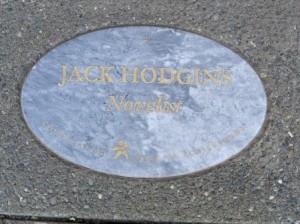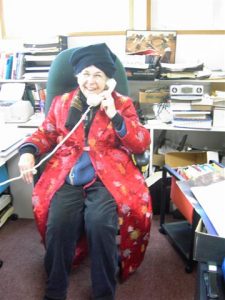It’d be stretching it to say a plate of scrambled eggs launched my writing career. But there is one breakfast I’ll always remember.
It was 1986, my year to take risks. I quit my job and told myself it was now or never if I was going to be a writer. But I had no idea how to make that happen.
Then I saw an ad for a writer’s festival at Strathcona Park Lodge. I signed up hoping that being around real writers would somehow nudge me in the right direction.
At Strathcona I met all sorts of people involved in the BC book industry. Anne Cameron, Hilary Stewart, George Bowering, Christie Harris, Bill Valgardson and Susan Musgrave were some of the authors present. Publishers Howard and Mary White of Harbour Publishing were there as well. I was more than a bit awe-struck.
Strathcona Park Lodge is known for its ample and delicious cuisine, all served buffet style with folks sitting together at long tables. On the first morning of the event I sat down with my breakfast and a few moments later one of the “big names” of the festival took the chair across from me.
It was Jack Hodgins, author of The Resurrection of Joseph Bourne, The Invention of the World and Spit Delaney’s Island.
I remember his head of curly brown hair, the sparkling eyes and a friendly-looking smile. I even remember the clothes he was wearing – a white safari-style jacket and pants.
But I mostly remember being overwhelmed by an acute attack of shyness. What could I possibly say to this award-winning writer?
And then, as I bashfully fumbled with my fork, Jack broke the ice. “Where’d you get that?” he asked indicating my plate of food. And so began a casual conversation that immediately put me at ease.
![jack3b[1]](http://paulawild.ca/wp-content/uploads/2011/08/jack3b12-240x300.jpg)
I didn’t see Jack often but we kept in touch over the years. We discovered that Strathcona was a turning point for both of us. I achieved my dream of becoming a published author; Jack realized he could teach writing outside a classroom.
This July Jack, who grew up in nearby Merville, visited Courtenay where he was inducted into the Comox Valley Walk of Achievement. This award is presented to former residents who have excelled in their field of endeavour and who inspire Comox Valley youth to believe in themselves and pursue their dreams.
Over his writing career, Jack has received many prestigious awards including the Order of Canada. But I think the recognition by his hometown community meant something special to him.
I know it meant a lot to those in the audience. The trajectory of Jack’s kindness and mentoring seems to stretch into infinity.
Although I’ve never taken a workshop with him, Jack has influenced my writing in many ways. His work, of course, is a stellar example of quality craftsmanship. But even more important has been his consistent encouragement and interest.
Sitting next to me in the Sid Williams Theatre was Susan Ketchen, author of Born That Way and Made That Way. She studied creative writing with Jack when she was in grade 12. “I still have some of the stories he marked,” she said. “They really weren’t very good but he always found something positive to say.”
Harold Macy, author of The Four Storey Forest, told me he’s exceedingly grateful for Jack’s support and guidance while putting the final touches on his book.

During the ceremony Harold read some comments by Matt Rader, author of A Doctor Pedalled Her Bike Over the River Arno and other works. “Jack Hodgins and Jack’s literary world are for a young writer from the Comox Valley something like what Faulkner and his world are for writers of the American south…He has a presence in this valley that guides our imaginations. And that is a lot like love.”
I think of the more than 15 novels Jack has written as a vast house with many levels and rooms. Each time a person opens one of Jack’s books, they enter one of those rooms. They’re decorated and furnished in a similar style but each possesses a unique view of the Vancouver Island landscape and is inhabited by the quirky characters that call this area home.
How lucky we are that Jack keeps adding onto his house, reinventing the stories he heard as a child into something that we can all treasure. And how lucky are those who have benefited from his gentle encouragement.

